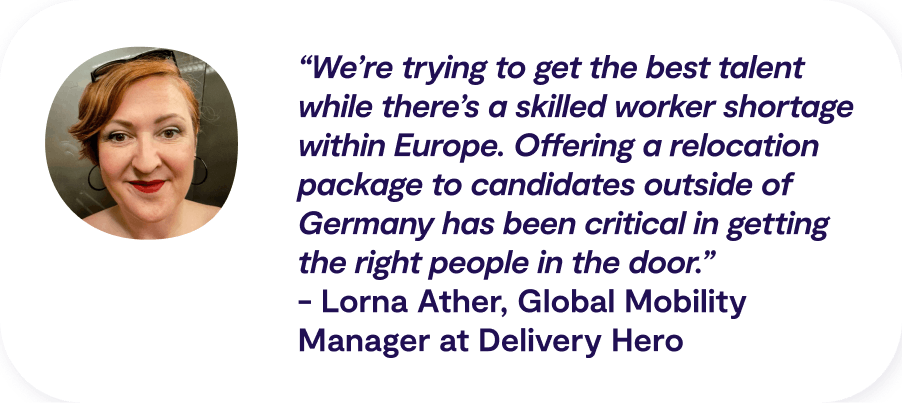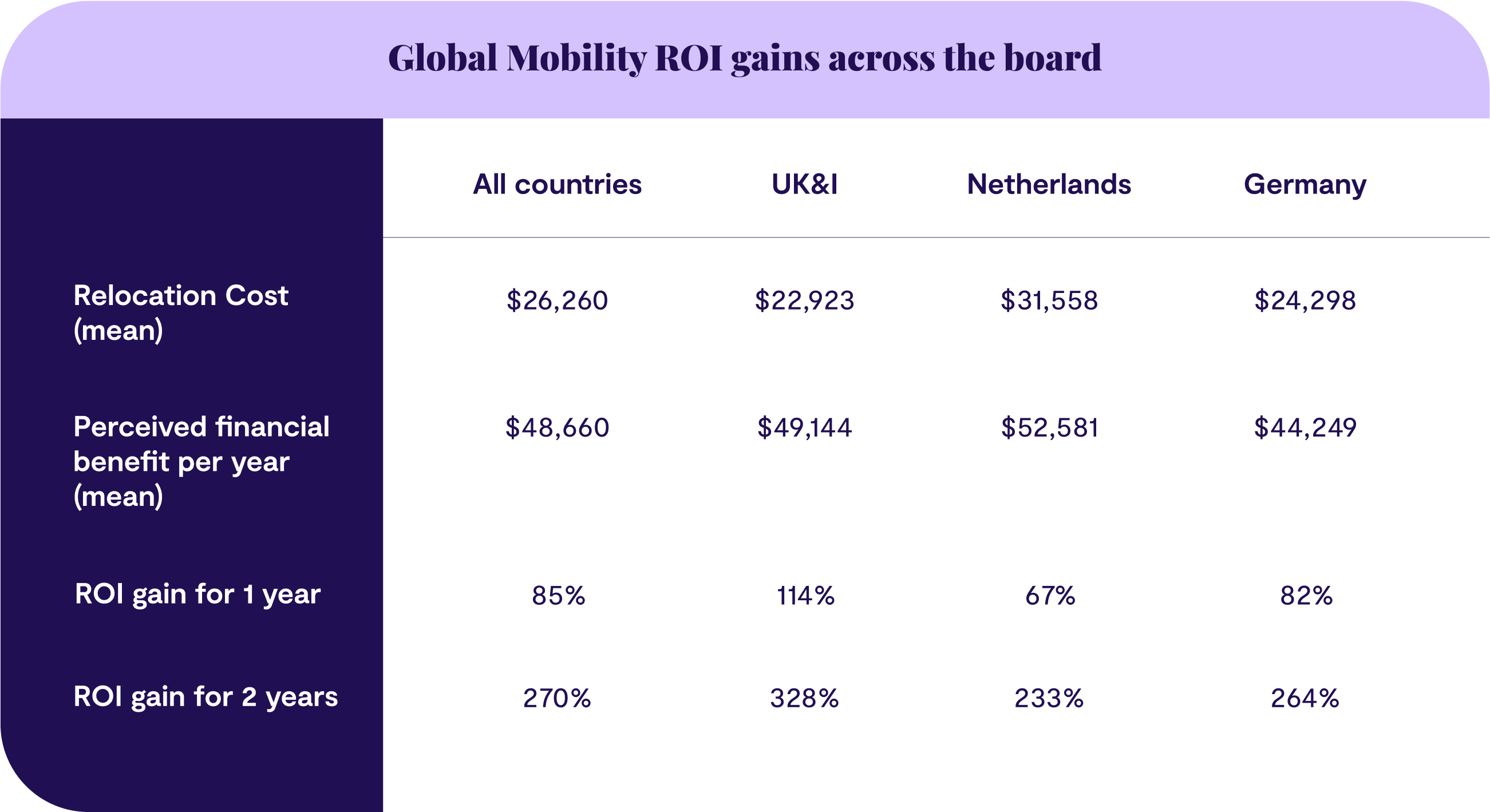As European businesses face big decisions on how to achieve growth in 2024, how much attention should they give to enabling their employees' movement across borders? We asked 240 European business leaders and managers what return on investment, both quantitive and qualitative, they observe from offering their people support with relocation and immigration services. The findings, in our report The ROI of Global Mobility, confirms that Global Mobility is not just a luxury perk: it's a vital business enabler.
Given that talent shortages are a prevalent challenge across Europe, it's important to highlight the top benefit respondents connect with Global Mobility — accessing top talent on a more global scale. This is crucial, because struggling to find a good fit for a new position can make a considerable difference to a company's bottom line. In fact, more than two-thirds of respondents in the UK, Ireland, and the Netherlands said they face this challenge when hiring just locally.

In these three countries, the average recruitment process takes up to six months. The more senior the role, the longer it takes to fill. With that come higher recruitment costs and an inability to close skill gaps.
When companies do fill the position from a limited talent pool, there's the risk of it not being a good match. 82% of respondents from these countries have had a bad hire, while more than a third said they have experienced multiple.
The impact? 44% said choosing the wrong employee harms overall productivity, while 39% said bad hires impact company morale. The damage can spill externally, with 35% confirming that a bad hire has also hurt customer satisfaction.
The financial figures are even more alarming: participants reported that a bad hire could set their companies back $42,000 on average. The pressure is on to find the right person, and relocating talent to existing hubs is a strategy more and more businesses have started to explore.
Regardless of where respondents were relocating talent to and from, all reported a high return on investment.
We asked them to capture what their main relocation costs were per relocated employee, and then the financial benefit they observe for each year from their impact on revenue, productivity, and culture.

If we look at all responses, the mean relocation cost is $26,260 while the mean perceived financial benefit is $48,660 per year, leading to an ROI gain of 85% if the relocated employee stays for one year. Given that relocations are typically a one-time expense, that ROI gain continues to grow with every year the employee stays at the company — to 270% for a 2-year tenure.
In other words, relocations deliver a near 2X return on their costs in the short-term, and can reach a near 4X return with relocated employees who stay for 2 years. The numbers just keep growing after that.
If you want to learn more about how Global Mobility can help both solve your talent shortages and provide measurable ROI, download our ROI of Global Mobility report.
